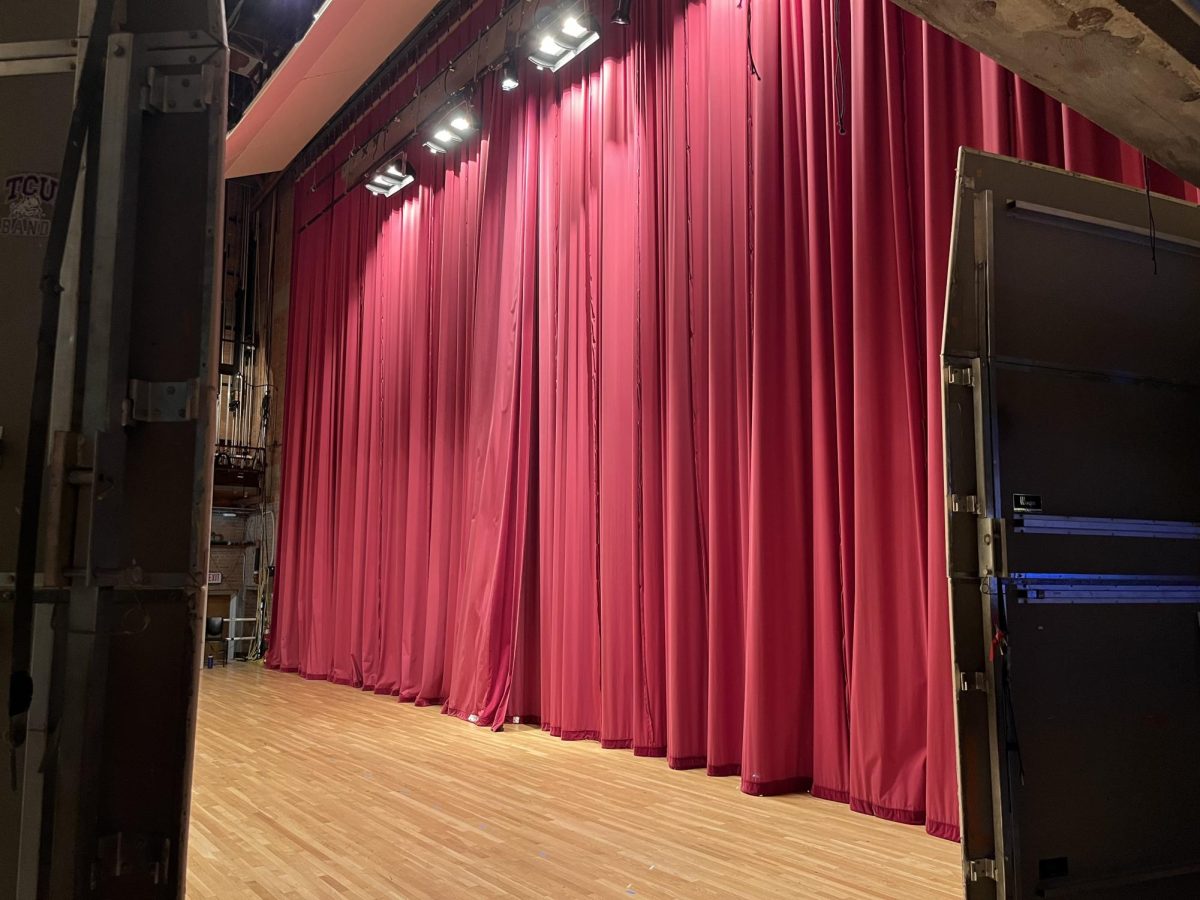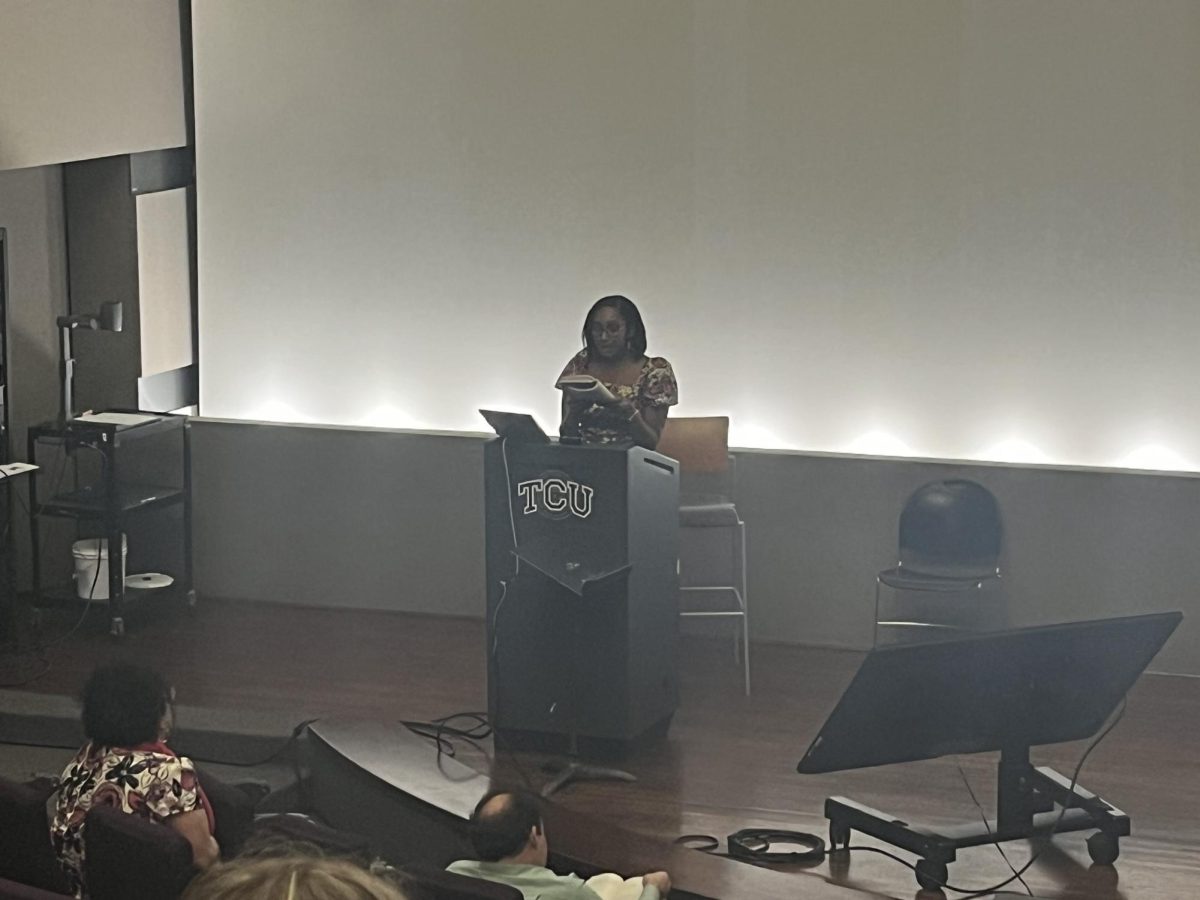Down an easy-to-miss, unassuming side street behind Dos Gringos restaurant lies a business with an idea new to the city of Fort Worth. The store isn’t intimidating or cliché, which is easy to be when you’re an adult novelty store in 2011. Instead, a classy, L-shaped space, decorated with touches of hot pink and black prides itself on selling gadgets and gizmos intended to keep things hot in the bedrooms of couples and singles.
A sex store in the historically conservative city of Fort Worth? While some are shocked, many are not, identifying the store’s existence as a sign of progression in and around the city due to the evolving perceptions of sex and sexuality happening in and around the country. The momentous equal rights marriage movement, certain mainstream television shows and the culture of today’s youth have all come together to fade and usurp certain sexual taboos that have pervaded American culture since the beginning of the century.
Marcelle LeBlanc, owner of the aforementioned adult novelty store named The Velvet Box, agreed wholeheartedly that people have become more open to exploring their sexuality and utilizing places like her store to learn the new and exciting options open to them.
The Velvet Box does indeed sell lingerie, nipple tassels, flavored lubricants, whips and handcuffs and panties with built-in vibrators, but LeBlanc insists that the atmosphere is unintimidating and said people oftentimes bring their children in to accompany them.
“We offer things that are new; things don’t have to be so scary anymore; they don’t have to be realistic…they can be fashionable, they can be pretty,” LeBlanc said. “Basically picking a vibrator is almost like picking a handbag.”
LeBlanc said it has been difficult at times because there are some who have fears and preconceptions of what the store is and what they are about.
“We cater to couples, we cater to conservative people; our primary goal is to educate and I realize, in the Bible Belt, there’s a whole lot of education that’s missing,” she said. “Sometimes people don’t really appreciate their bodies and what it’s here for and know it’s okay to have fun. It’s okay to feel good.”
LeBlanc said The Velvet Box receives prejudice mainly from people that have never been to the store.
“They have preconceived notions of what we might be,” she said. “And they make judgments according to what they know in the past. Generally, once people come in, they’re pleasantly surprised.”
In this fashion, LeBlanc said, people are indeed becoming more comfortable and less intimidated by sex. She pointed to television and shows such as Sex and the City and Saving Grace, which is on prime time, where sex is basically another character or facet of the show itself.
TCU anthropology Professor Lisa Vanderlinden expressed similar beliefs, saying the characters of shows like Sex and the City and Will & Grace are novel because the characters are agents of their own sexuality.
“I think [the characters’ sexuality] gives people greater license to do that in their own lives and they see that enacted,” Vanderlinden said. ”I definitely think that goes hand in hand with gay and lesbian movements.
Vanderlinden pointed to the recent legalization of gay marriage in New York state as an example of society’s ability to form stances without the mass media’s influence.
Like LeBlanc, Vanderlinden expressed ideas of sexuality and comfort correlated to regions in the United States. In the “Sex & Gender” class she teaches, Vanderlinden said she has been talking with her students about the recent spike in teenage pregnancy on the heels of the significant amount of funding former President George W. Bush’s put toward abstinence-only programs. Though these have backfired, Vanderlinden explained, “across the board” 80 percent of parents are more comfortable with their children having a comprehensive sex education.
“I think we’re generally seeing more and more people who are comfortable with sex and talking about sex,” she said.
Again, she said she believed the media plays—and will continue to play—an important role in the growing comfort with sexuality, both hetero and homo, in an open space.
This comfort is exemplified by shows like Modern Family, in which a gay couple is married with a child, Vanderlinden said.
“We would never have had the space to see something like we see in the relationship on Modern Family, even ten years ago,” Vanderlinden said.
In a way, this relationship has encouraged viewers to see the “normalcy with things that are associated with ideas other than heterosexuality,” she said.
Vanderlinden mentioned campaigns like The Trevor Project and the It Gets Better Project, which have helped further the ideas dissolving taboos, especially within the sphere of the lesbian, gay, bisexual and transgender community.
“I think it’s very difficult to see certain problems when people are courageous enough to be out there with their identity and their politics,” she said. “Letting people know they’re not alone changes a lot.”
There is evidence of evolving perspectives on sex and sexuality as close to home as TCU’s campus, Vanderlinden said, such as Gay Straight Alliance and the group of students that put on The Vagina Monologues every year.
“I think when you see something like the Vagina Monologues and when you see people around you who are just living their lives differently…to live among people like that really helps people to realize we’re all people. We’re all related,” she said.
Jamal King, president of Gay Straight Alliance at TCU, said the organization is open about talking to members about sex and sexuality.
“It is really important to us that we are transparent,” he said. “We’re just a bunch of guys and girls that like other guys and girls and we have a lot of straight people. There are things that we do to ensure members and people are having open conversations about sex and sexuality,” King said.
King also said he credits the media and the up-and-coming generation with their comfort level in talking about sex and embracing their sexuality. He said he feels his generation is more sex-oriented, “It’s in the way that we dress, the way that we act toward each other, the jokes we make with each other,” he said.
“The media has the biggest influence on us. We’re fed sex all the time through ads and TV shows, but I think it’s just an overall progressive kind of thing. I think it’s just we’re seeing sex as no longer just procreation—it’s a way of dressing. Talking about the attractiveness and overall sexuality of people is just becoming more lax and more commonplace.”
TCU does well in providing open, accepting spaces to explore talking about sex, King said.
“We as a school have functions, like a sex and sexuality class, and we have “Fosterotica” that happens every year, where we talk about being safe and having safe sex,” he said.
“All that is really important to make sure that we are being open with each other because I think it’s scary to think about what would happen if we weren’t open.”








